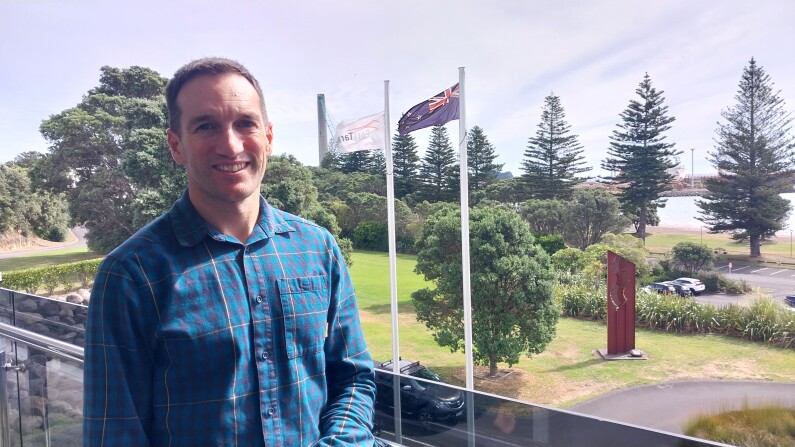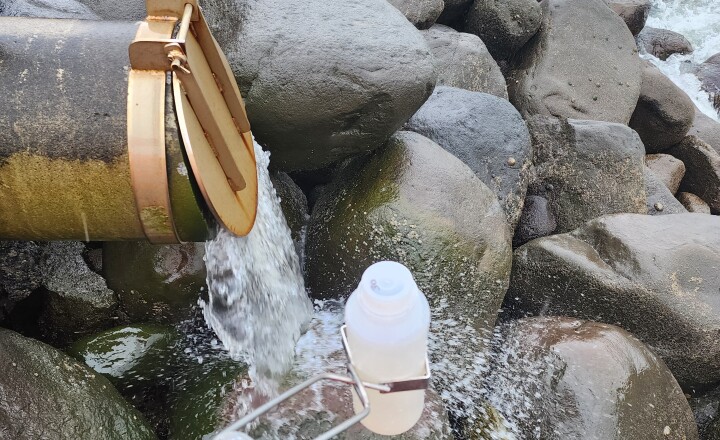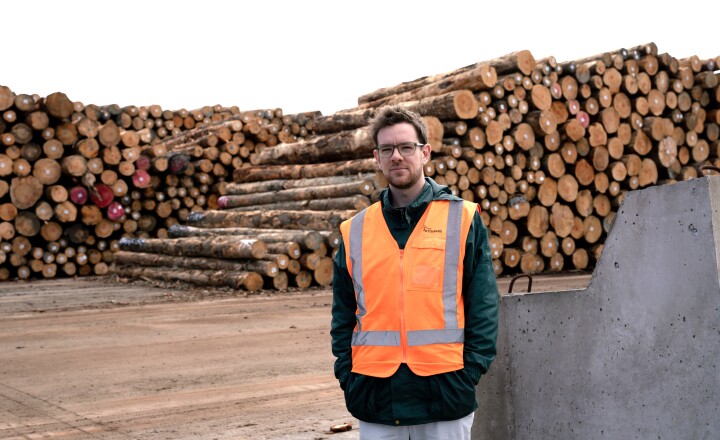
Summer in Baghdad was so hot that when Dougal Morris and his British navy engineering colleagues worked on the military helicopters, they wore gloves to prevent their hands from burning on the searing metal tools.
“Even the glue that held the pages in books melted, so if you weren’t careful the pages would fly away while you were reading,” he recalls of his time in Iraq in 2003.
Dougal, who these days is a Port Taranaki project manager, was born and bred in England and joined the navy at 16 as an apprentice helicopter engineer. Once qualified, he “followed wherever the navy helicopters went”, having stints in Northern Ireland, Bosnia, France, and, ultimately, Iraq and Afghanistan.
Leaving the navy, he moved to Aberdeen, first working in the oil and gas industry, then as a project engineer in the offshore wind sector.
With a friend in New Plymouth enticing him abroad, Dougal, wife Claire, and their two boys moved to Taranaki in 2011, where he took project engineering and operations maintenance roles, before studying to become a project manager.
“Having worked mainly in oil and gas, I hadn’t really considered where I could transfer my skills easily, but a friend mentioned the port.
“I applied for a job and have worked here a year now. I really enjoy it. In terms of activity, it’s interesting and there’s a real variety – I’ve worked on the likes of the wave wall strengthening on the Main Breakwater, storm water upgrades on Blyde Wharf, and the latest dredging campaign.”
Beyond work and family life, Dougal has a passion for biking, has run marathons in the past, played bass in a band, and is also into creating digital music.
“I call them musical ideas, rather than songs at this point. I’ve got lots of ideas, but I’m stuck on the vocals – I don’t sing!”
What does your role involve?
Really, it’s about managing the various stakeholders involved in a project and helping keep it on track and budget. So, reporting to the financial and operations teams, and being the connection between the office and those on-site, which can include external contractors.
What do you like about it?
It’s broad – it covers a lot of things. You don’t have to be an expert in one particular area, but need to know enough when something crops up on a project to be able to understand the implications and communicate these with stakeholders.
What are the challenges?
I think it’s understanding what information people need throughout a project to get the project done without bombarding them with emails and irrelevant information.


